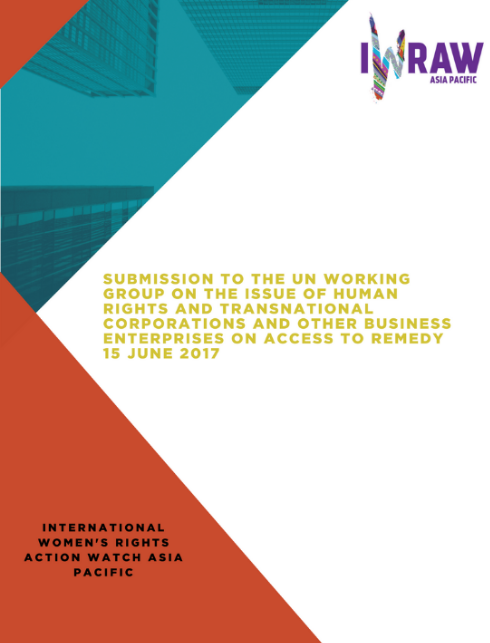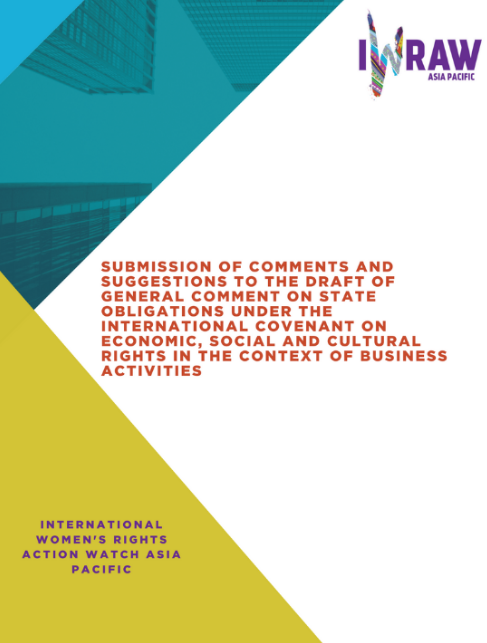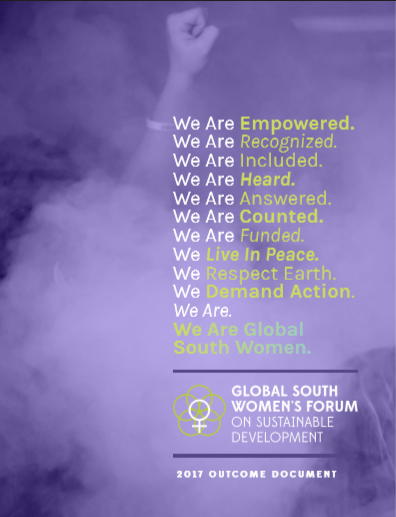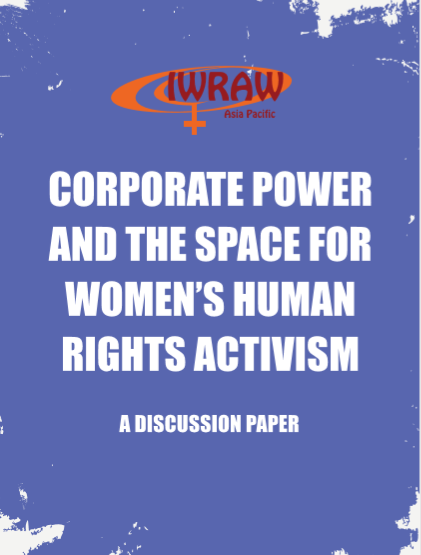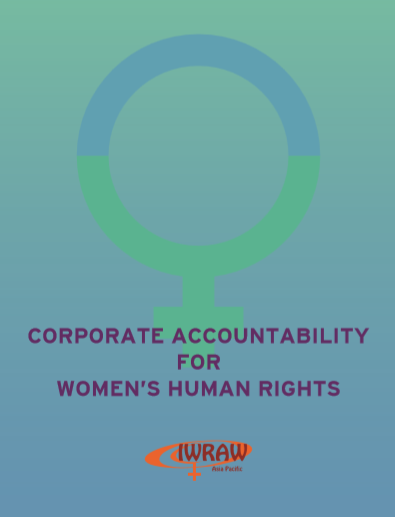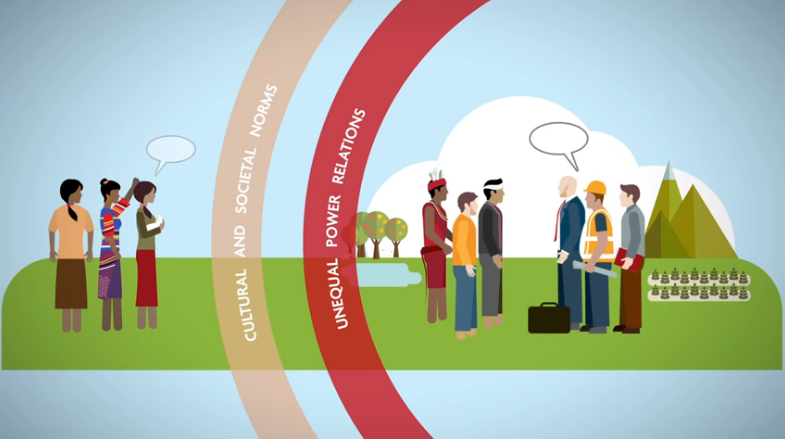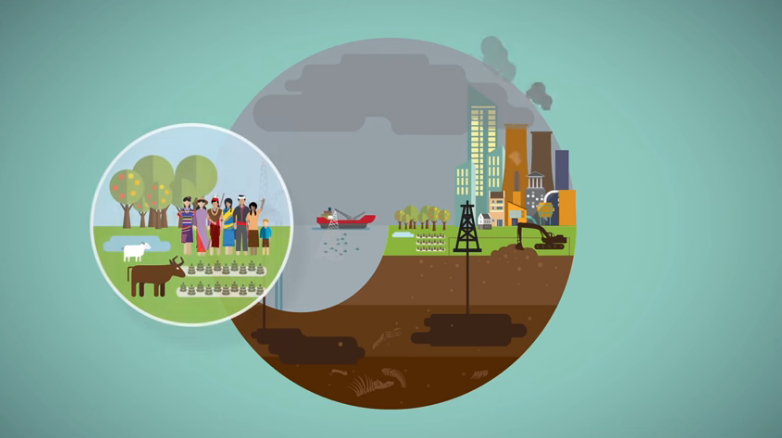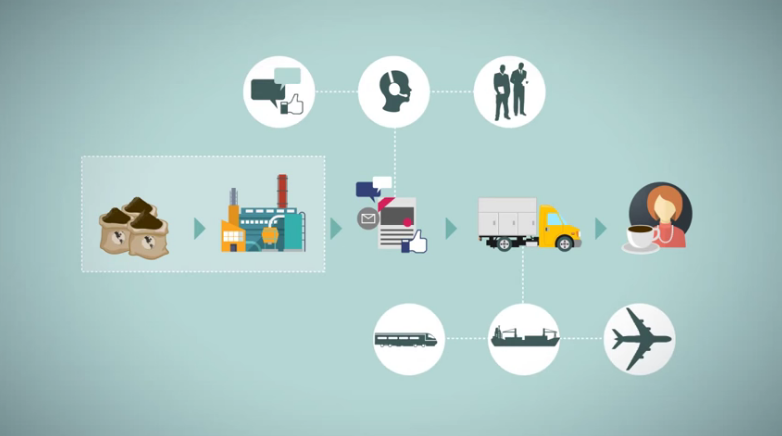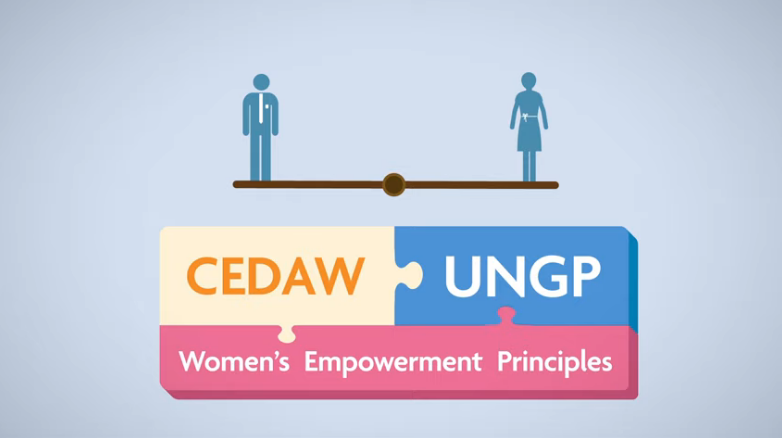Joint Submission on Access to Remedy
2017
Five-page PDF of submission by IWRAW Asia Pacific, the Landesa Center for Women’s Land Rights and others to the UN Working Group on the issue of human rights and transnational corporations and other business enterprises on Access to Remedy. Includes examples of how women experience corporate human rights abuses differently from men and makes recommendations […]
Read MoreIWRAW AP’s Final Submission to CESCR on General Comment
2017
Six-page PDF of Submission of Comments and Suggestions to the Draft of General Comment on State Obligations under the International Covenant on Economic, Social and Cultural Rights in the Context of Business Activities, submitted on behalf of IWRAW Asia Pacific and other organisations and individuals.
Read MoreOutcome Document of the 2017 Global South Women’s Forum On Sustainable Development
2017
29-page outcome document, in PDF format, of the 2nd Annual Global South Women’s Forum on Sustainable Development. The document draws on the insights of the participants, united by two fundamental convictions: firstly, that gender equality should be integrated, interlinked and indivisible both in human rights and the Sustainable Development Goals (SDGs); and secondly, that in […]
Read MoreCorporate Power and the Space for Women’s Human Rights Activism
2017
62-page discussion paper in PDF format, aimed at beginning a conversation about how women’s rights activists and organisations can address the growing power and influence of the private sector in order to protect women’s human rights.
Read MoreCorporate Accountability for Women’s Human Rights
2017
50-page PDF which outlines regional and global developments affecting corporate responsibility and accountability for women’s human rights; the history of the UN’s work on business and human rights; and case studies and strategies for drawing accountability for violations of human rights in the context of business activities.
Read MoreBusiness and Women’s Human Rights: Natural Resource Governance & Management – International Standards
2014
This video – the last in a series of five – explains some of the international standards related to natural resource governance and emphasises the State’s human rights obligations. It also highlights the need for women’s rights to natural resources to be addressed using international human rights standards. This video was made possible with the […]
Read MoreBusiness and Women’s Human Rights: Natural Resource Governance
2014
This video – part four in a series of five – explains natural resource governance and emphasises the importance of the State and private actors in involving local communities. It also highlights the need for women’s human rights to be addressed using international human rights standards. This video was made possible with the support of […]
Read MoreBusiness and Women’s Human Rights: Women in the Value Chain
2014
This video – part three in a series of five – includes an explanation of ‘value chain’ and women’s roles in it, research by FAO (Food and Agriculture Organisation) on female agricultural workers, components to help women achieve equal access to resources, and the relevance of incorporating CEDAW Article 14 into value chain analysis and […]
Read MoreBusiness and Women’s Human Rights: Women Migrant Workers
2014
This video – part two in a series of five – looks at the factors pushing women to migrate to other countries in search of employment; jobs that migrant women workers are limited to; discriminations faced before, during, and after migration; lack of protection in informal sectors; and how CEDAW General Recommendation No. 26 is […]
Read MoreBusiness and Women’s Human Rights: CEDAW, UNGP and WEP
2014
This video – part one in a series of five – introduces applicable humans rights frameworks (Convention on the Elimination of All Forms of Discrimination Against Women, United Nations Guiding Principles on Business and Human Rights, and Women’s Empowerment Principles) when dealing with corporations or businesses (private sector) for the promotion of gender equality and […]
Read More

